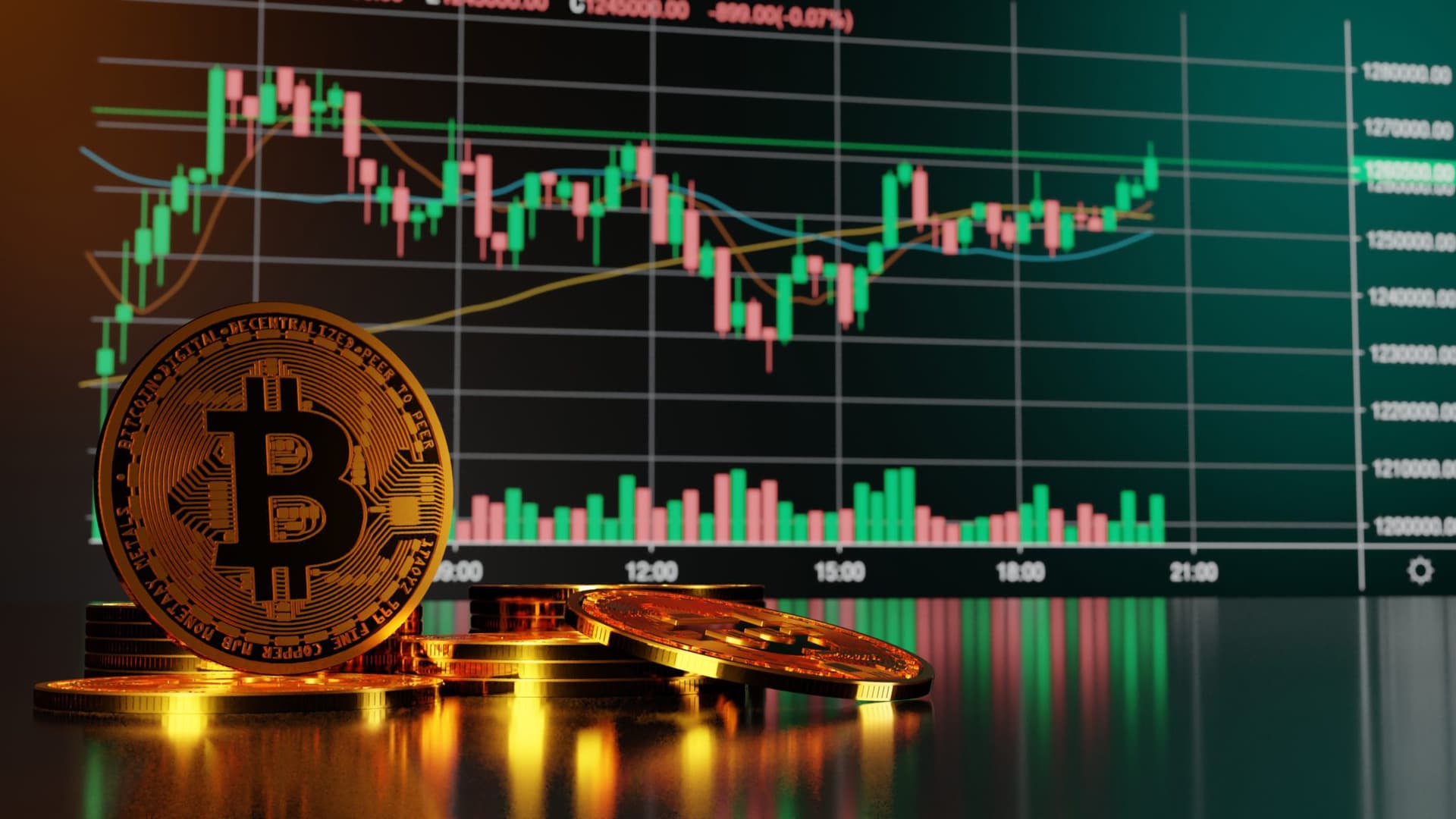How Relevant Will Blockchain ETFs be Once Bitcoin Offerings are Approved?
Invesco and Volt Equity latest issuers to gain approval for ETFs investing in crypto companies.

Source: Shutterstock
- ETFs focused on crypto companies should remain relevant as “leveraged plays” as investors will want exposure to digital assets beyond just bitcoin, Zacks Investment Research ETF director says
- Launches by Invesco and pending launch by Volt Equity come a few weeks before some expect the SEC to approve ETFs that would invest in bitcoin futures contracts
As many investors have yet to see an ETF in the US that invests directly in bitcoin, and fund issuers await SEC approval for futures-based bitcoin offerings, the number of blockchain ETFs that invest in crypto companies continues to grow.
Invesco, which manages more than $1.5 trillion in assets, launched the Invesco Alerian Galaxy Crypto Economy ETF (SATO) and the Invesco Alerian Galaxy Blockchain Users and Decentralized Commerce ETF (BLKC) on Thursday. The offerings provide equity exposure to global public companies and select investment vehicles in the cryptocurrency and blockchain sectors.
The SEC also approved this week Volt Equity’s proposed Crypto Industry Revolution and Tech ETF (BTCR), which is expected to launch in the next few weeks. The actively managed fund is more bitcoin-focused than others, as it will invest in US and foreign companies with exposure to bitcoin and its supporting infrastructure. It will not invest in Canadian ETFs or private funds and will invest no more than 15% of the fund’s net assets in the Grayscale Bitcoin Trust (GBTC), according to a regulatory filing.
ETF issuers are seeking different ways to offer investor access to crypto as the SEC has not yet greenlit the dozen or so physically-backed bitcoin ETFs in registration. A range of issuers has been filing for futures-based bitcoin ETFs, which could be approved as soon as the end of the month.
Futures-based bitcoin ETFs and blockchain ETFs offer more indirect exposure to the market than would a spot product, industry professionals have argued, likely making them less desirable to some investors.
But John Hoffman, Invesco’s head of ETFs and indexed strategies in the Americas, told Blockworks in an email that the disruptive innovation of blockchain technology is spawning an entirely new industry.
“Bitcoin as a network and bitcoin as an asset are a very important part of this; however, there is an entire infrastructure and ecosystem emerging within and around bitcoin,” he explained. “As we did in traditional commodities and currency markets, we will continue to make it easy and safe for all investors to precisely access all parts of the blockchain ecosystem.”
Is the Blockchain ETFs space too crowded?
The Invesco and Volt Equity products will join a handful of others that invest in crypto companies rather than crypto assets directly. The largest crypto ETF trading in the US is Amplify Investments’ Transformational Data Sharing ETF (BLOK). The product, which launched in January 2018, has $1.2 billion in assets.
SRN Advisors’ Siren Nasdaq NexGen Economy ETF (BLCN) launched one day after BLOK and currently has $273 million. Launching later that month was the First Trust Indxx Innovative Transaction & Process ETF (LEGR) and the Capital Link Global Fintech Leaders ETF (KOIN). LEGR holds $134 million in assets, while KOIN has just $29 million.
Launched earlier this year, the VanEck Digital Transformation ETF (DAPP) and the Bitwise Crypto Industry Innovators ETF (BITQ) currently have $50 million and $76 million, assets, respectively.
“I think it’s a bit too many,” Neena Mishra, director of ETF research for Zacks Investment Research, said of the dozen or so blockchain-related ETFs.
She added that those that launched after BLOK and BLCN have struggled to grow.
“It remains to be seen whether they will be able to gather assets,” Mishra said of the Invesco and Volt offerings. “This is an evolving space and it requires some expertise of the managers, so probably managers which are able to deliver performance … will see some interest from investors.”
Mishra also noted that despite a lot of focus on when futures-based and physically-backed bitcoin ETFs will be approved, blockchain ETFs will likely remain relevant because of the vast landscape of crypto assets that investors may want exposure to.
Eight of the 10 best-performing exchange-traded products in the world this year are European-based crypto funds that track assets such as Ethereum (ETH) Binance Coin (BNB) and Ripple’s XRP, the Wall Street Journal reported last month.
Offerings like those in Europe will not be available to US investors anytime soon, Mishra said. If the blockchain ETFs from Invesco and others are able to offer exposure to crypto-assets that may be performing better than bitcoin, she added, investors will likely flock to them.
“When gold does well, gold miners act as leveraged plays on the metal, and at that time we just see a lot of interest from investors in gold mining ETFs too because of the performance,” she said. “Probably these [crypto ETFs] may act as leveraged plays on cryptocurrencies.”






